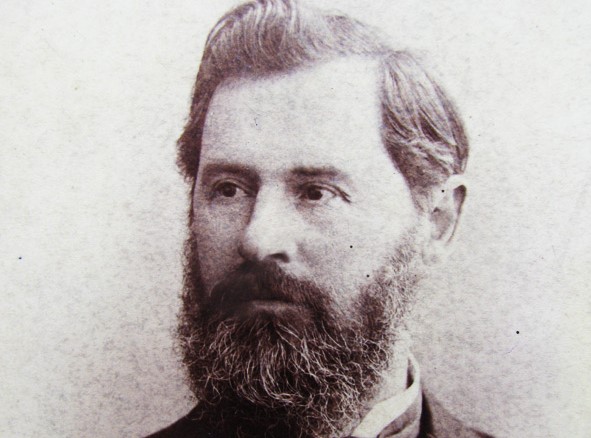He was one of the Menshevik leaders: who is Pavel Borisovich Axelrod?
Russia was once a "communist" country, and the first step on the road to communist revolution was taken with the overthrow of the Tsar. The conflict between Russian politicians, who then split into Mensheviks and Bolsheviks, determined the fate of the revolution.

(1850-1928) Russian politician. He is one of the founders of the Russian Social Democratic Labor Party and one of the Menshevik leaders. He was born in Kyiv. He died in Berlin. His father was a hotel manager. He studied at the University of Kyiv. He was greatly influenced by the views of Ferdinand Lasalle, one of the leaders of the German workers' movement. In the 1870s, he sided with the Narodniks, who argued that a social transformation in Russia could be accomplished by relying on the peasants. He went abroad in 1874. He wrote articles for the newspaper Robotnik and helped to publish the journal Obshichina. He returned to Russia in 1879. During these years, the Narodnik organization Land and Freedom, founded in 1876, split in two. One section advocates political struggle through individual terror; the other opposed violence and argued that the peasantry should be taken as the basis for the organization's work. Axelrod, together with Plekhanov, took part in this second group, known as the Black Faction.
Pavel Borisovich Axelrod (25 August 1850 – 16 April 1928) was an early Russian Marxist revolutionary. Along with Georgi Plekhanov, Vera Zasulich, and Leo Deutsch, he was one of the members of the first organization of Russian Marxists, Emancipation of Labor. After the 2nd Congress of the Russian Social Democratic Labour Party, he was part of the Menshevik faction, with which he was identified until his death.
Axelrod, who went to Switzerland in 1880, adopted Marxism during these years. In 1883, together with Plekhanov, he founded the Emancipation of Labor group, the first social democratic organization in Russia. In the following years, he participated in Marxist propaganda work. In the late 1890s, he vehemently opposed the political trend known as economism. This tendency, rejecting the political struggle, limited the struggle of the working class only to the struggle for economic rights in the field of trade union activity. In 1900, Akselrod was among the founders of the newspaper Iskra (Spark), the first central organ of the Russian Social Democratic Labor Party.
Axelrod was among the Mensheviks after the Russian Social Democratic Labor Party split into two factions, later to be named Bolsheviks and Mensheviks, at the Second Party Congress in London in 1903. He advocated collaboration with bourgeois liberals in the 1905 Revolution. In 1908, he became the representative of the political trend that would be called "liquidationism" by the Bolsheviks. This tendency advocated ending illegal party activities and shifting party work to the trade union and parliamentary sphere.
During World War I, Axelrod attended the Zimmerwald Congress, which was formed by those who adopted an internationalist stance against war. He was a member of the Executive Committee of the Petrograd Soviet in the February Revolution of 1917. He supported the Kerensky Provisional Government established after the February Revolution. In the October Revolution of 1917, he opposed the power of the Bolsheviks and left his country. In the last years of his life, he was a member of the Executive Committee of the Socialist Workers' International, which was founded in 1923 as a reaction to the Communist International and was the continuation of the second International.
Axelrod represented the trend in the Russian social democratic movement which, together with Plekhanov, adopted an alliance with the bourgeois liberals. Although the importance of Plekhanov is at the theoretical level; Axelrod dealt with problems of organization and tactics.
